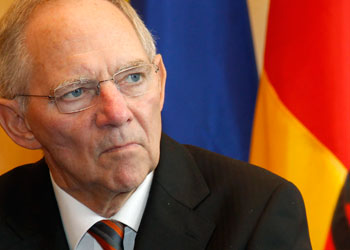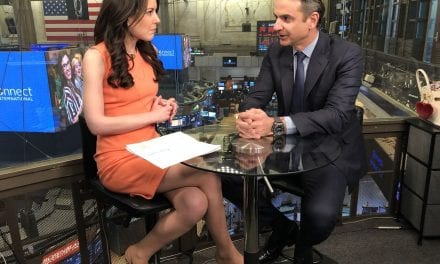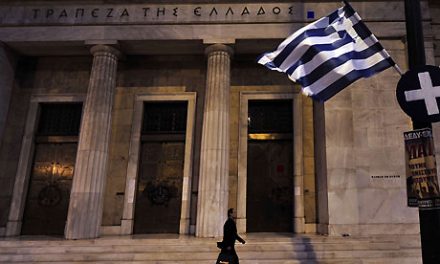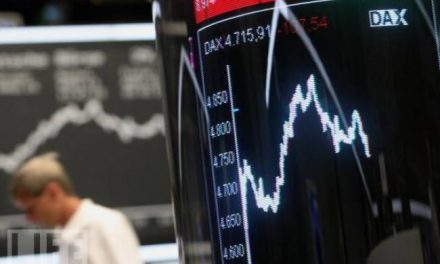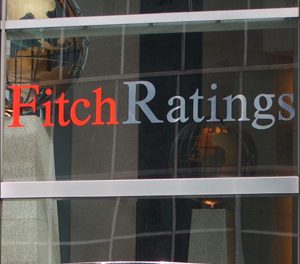By Rainer Buergin & Arne Delfs, Bloomberg
German Finance Minister Wolfgang Schaeuble asked lawmakers to back Greece’s third bailout, saying it offers a “sustainable path” even though the International Monetary Fund hasn’t committed to footing part of the bill.
Schaeuble’s letter to parliament Monday is part of the buildup by Chancellor Angela Merkel to the lower-house vote on Wednesday, one of several in the euro area on the 86 billion-euro ($95 billion) aid package that requires further economic reforms and austerity by Greece.
With the IMF saying it will decide on joining the bailout only after the first progress report, Merkel has said she expects the fund will sign on in the fall. That’s not enough for some members of her caucus, where the risk of further defections is growing.
“I’m also very sure that the IMF will contribute to the program, just as we declared this to be indispensable,” Schaeuble said in an interview with ZDF television later Monday. He expressed understanding for the dissenters, while saying he’ll also “tell them my arguments why I think the right decision is to agree” to the bailout.
Merkel’s coalition has consistently backed bailouts during Europe’s debt crisis, though dissent has grown with each ballot and 60 lawmakers in her 311-member caucus voted against even holding talks on further aid to Greece last month.
Party Rebellion
“The IMF is a critical question for all of us,” deputy caucus leader Michael Fuchs said in a Bloomberg Television interview. “If the IMF is on board, if the IMF really says — yes, we’ll come on board in September and continue to finance Greece next year, then of course I will vote pro.”
“There could be more” defectors than in the July vote, he said.
In the letter, Schaeuble asks for authorization to approve the bailout at a meeting of the European Stability Mechanism, the euro area’s financial backstop, on Wednesday evening, hours after Bundestag lawmakers vote in Berlin. He also asked them to unlock a first payment of 26 billion euros, mainly to repay Greece’s creditors and recapitalize banks.
Gerda Hasselfeldt, parliamentary leader of the Christian Social Union, the smaller of two parties in Merkel’s bloc, urged her faction also to fall in line. The proposed bailout is a “tough reform package with a tight web of oversight” that justifies a vote in favor on Wednesday, she said in a statement.
Merkel’s group is being asked to sign off relying on her confidence that IMF Managing Director Christine Lagarde will back the fund’s participation later.
“Everybody has to ask themselves whether they have a good justification for a ‘no’ vote,” Peter Tauber, general secretary of Merkel’s Christian Democratic Union, said in Berlin.
The IMF wants to await the “capacity and willingness of the Greek authorities to deliver the required adjustment” and adoption of debt-relief measures by the European creditors before deciding on its role, according to an ESM document provided to the German parliament and obtained by Bloomberg. “The IMF contribution to the financial assistance is at this stage undetermined.”

